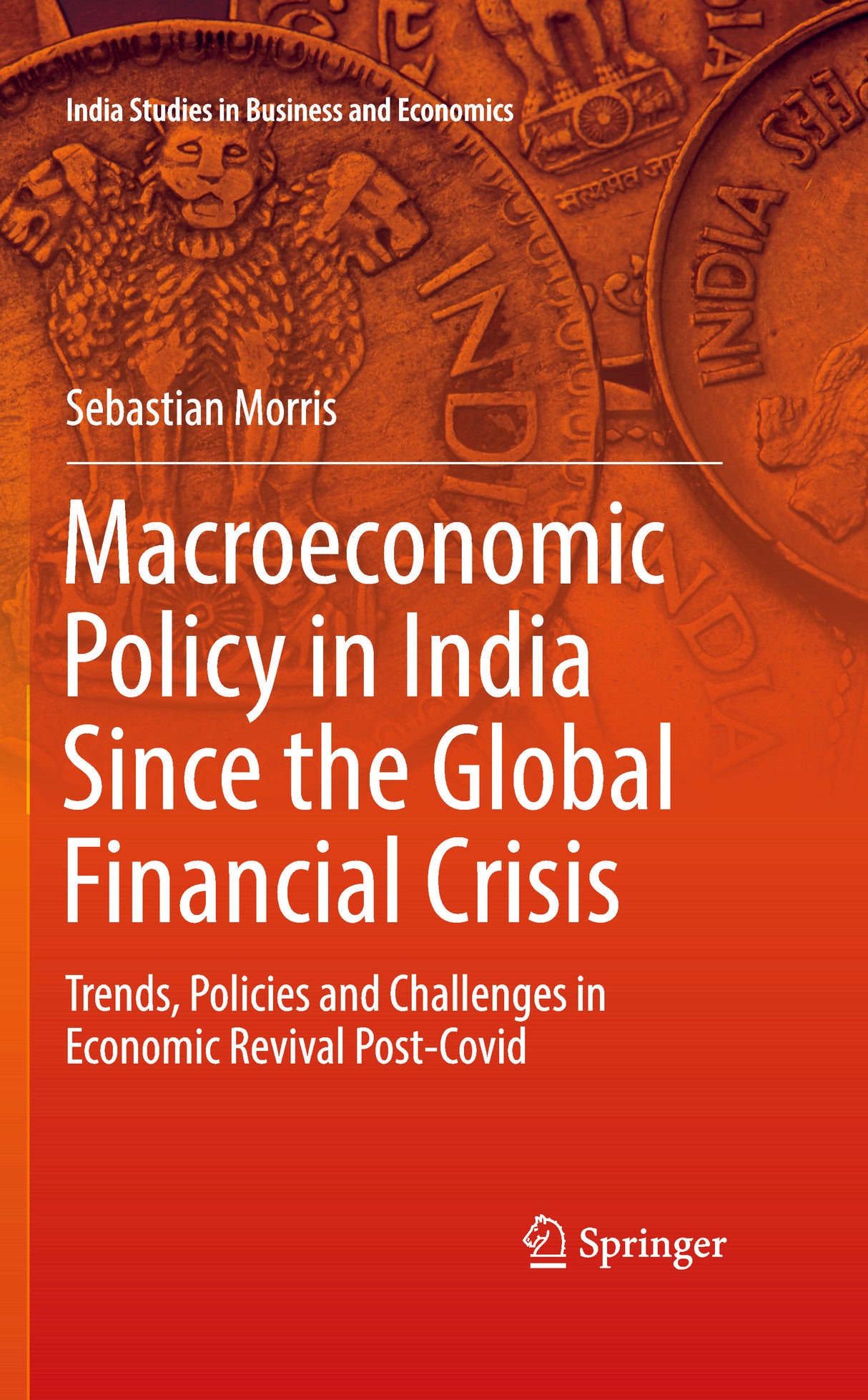MACROECONOMIC POLICY IN INDIA SINCE THE GLOBAL FINANCIAL CRISIS: Trends, Policies and Challenges in Economic Revival Post-Covid
MACROECONOMIC POLICY IN INDIA SINCE THE GLOBAL FINANCIAL CRISIS: Trends, Policies and Challenges in Economic Revival Post-Covid is backordered and will ship as soon as it is back in stock.
Couldn't load pickup availability
Genuine Products Guarantee
Genuine Products Guarantee
We guarantee 100% genuine products, and if proven otherwise, we will compensate you with 10 times the product's cost.
Delivery and Shipping
Delivery and Shipping
Products are generally ready for dispatch within 1 day and typically reach you in 3 to 5 days.
Book Details
-
Publisher: Springer
-
Author: Dr. Sebastian Morris
-
Binding: Hardback
-
Number of Pages: 324
-
Release Date: 2024
-
ISBN: 9789819974818
-
Languages: English
-
Sale Territory: India Only
About the Book
This book delves into the Indian economic crisis, analyzing what went wrong and what corrective actions are necessary to get the economy back on a high growth trajectory, ultimately leading to economic transformation. It examines the performance of the Indian economy since the Global Financial Crisis to the effects of COVID-19, exploring the factors that influenced this performance.
The book critiques the macroeconomic policies of both the Reserve Bank of India (RBI) and the government, highlighting what needs to be done for these policies to support high growth. It draws comparisons with East Asia and China, pointing out that India has similar potential for growth, particularly through expanding manufacturing. The author argues that both macroeconomic policies and structural, industrial, and trade policies have been insufficient. Even when there have been positive industrial and trade policy initiatives, these have often faltered due to a lack of a cohesive macroeconomic strategy.
Special attention is given to the vast opportunities present in India’s emerging economy, particularly its underutilized labor force, and the macroeconomic policy initiatives needed to leverage this advantage. The book offers an in-depth analysis of a wide range of macroeconomic data, including GDP/GVA, credit, exports, external transactions, interest and policy rates, inflation, government expenditures, tax rates, fiscal deficits, and market uncertainty.
An innovative approach is used to present the trends in monetary and fiscal policy, using a variety of variables to give a holistic picture of the economy and the shocks and policy actions that followed. The book also critically addresses the overestimation of GDP/GVA growth estimates from 2011-12 to 2016-17. Additionally, the performance of the economy since the COVID-19 crisis is discussed in depth, with a focus on the limitations of government initiatives in addressing the crisis.
This book serves as a quick reference for understanding India’s macroeconomic situation and will be of great interest to international economists, policy analysts, investors, and anyone looking to understand the economic landscape of India.
Contents
-
Introduction
-
Trends in Growth Since the GFC
-
Credit, Employment, and the Current Account
-
Capital Formation and Foreign Investment
-
Inflation and Monetary Developments
-
Policy and Analyses
-
Reflexive, Not Reflective Monetary Policy
-
The COVID Crisis and Response
-
The Recovery
-
The Challenge of Manufacturing
-
GST and the Discrimination Against Production Oriented States
-
Conclusions
About the Author
Dr. Sebastian Morris is a Senior Professor and Chair of the Centre for Public Policy and Governance at the Goa Institute of Management. He previously taught macroeconomics, infrastructure, Indian economic performance, and public policy at the Indian Institute of Management Ahmedabad for over 25 years. Dr. Morris initiated and edited the influential India Infrastructure Reports, which set the agenda for infrastructure reforms in India.
He was the lead author of the book Growth and Transformation of Small Firms and designed and delivered various senior civil servant programs focusing on governance, economic strategy, and public value creation. Dr. Morris also served as the ICCR Chair Professor at Copenhagen Business School and a Ford Foundation Fellow at the University of Pennsylvania. Additionally, he has been a consultant to various governments and has taught extensively in executive programs on the Indian economy and its transformational challenges.





